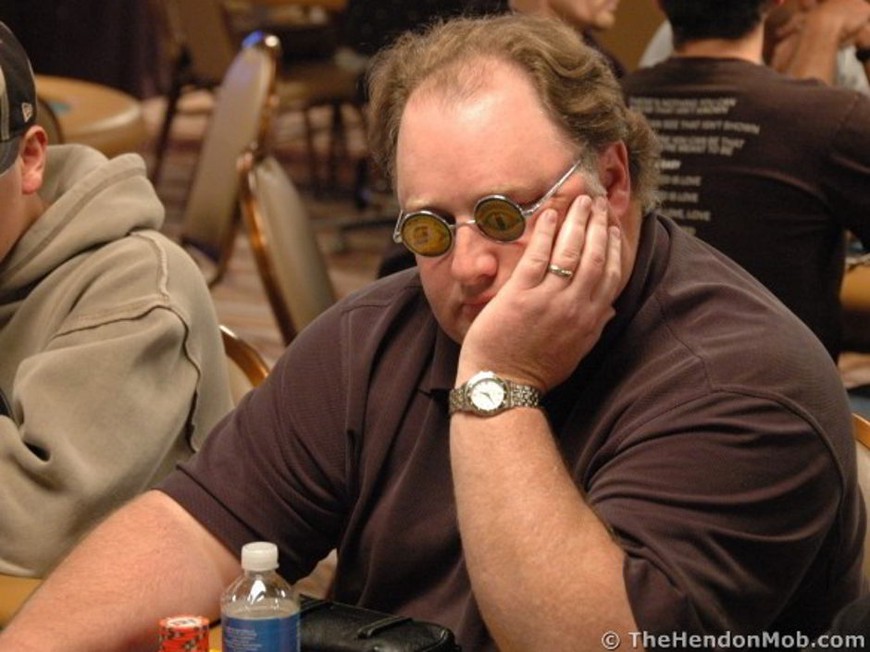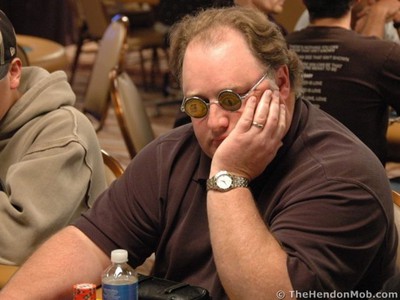

- The tale of an investor that is backing Greg Raymer.
Greg Raymer warned me.
When the former WSOP Main Event champion was hunting for backers earlier this year, I told him not only was I considering being an investor, but that I was also interested in chronicling the ups and downs of his monthly grind for pokerfuse.
His response initially was lukewarm — not to my money, but to the possibility of negative publicity given the nature of players who spend most of their time in tournaments. According to the Fossilman, “A stream of losing months being written about could be quite damaging to my reputation, even though experienced poker players would know to expect such results, given what I do.”
Eventually, he acquiesced and so did I, to the tune of $3,000 (3 shares). Raymer’s bankroll started with $81,000, including $20,000 of his own money, and was to be for tournament entry fees and cash games only; expenses were on his own dime. The largest outside shareholder is in for $6,000 and the majority own only one share.
The Fun of Investing in a World Champ
I thought living vicariously through his play would be an entertaining diversion to life’s boring routine. But despite Raymer’s periodic and thorough email updates to investors, the “fun” aspect seemed to be lacking. Largely, that likely resulted from the amount of losing he detailed in those messages to us.
Each “Report to Backers” has held with it the promise of opening a Wonka Chocolate Bar, hoping for a Golden Ticket inside. Instead, we have seen lots of numbers in red ink, signifying a bankroll that was heading in the wrong direction.
Until earlier this week.
WSOP Success
Returning to the town of his greatest success, Raymer entered a number of WSOP events at the Rio in Las Vegas before finally hitting paydirt in WSOP event #14 – Omaha/8. The $1500 buy-in tournament began with over 1,000 players and Raymer finished in 7th place, winning over $32,000 for his shareholders.
After seeing his bankroll drop below $50,000, the success in event #14 has allowed Raymer to get back to shouting distance of even for the year.
History of Investors
Seeking investors is nothing new to Raymer and is actually quite common for pro players.
His backers from mid-2002 through mid-2004 were certainly handsomely rewarded, culminating with Raymer’s first place finish at the WSOP’s Main Event and a check for $5 million. Then years of PokerStars sponsorship followed and eliminated the need for investors.
But with online poker in the United States currently fighting an uphill battle to become legalized, the major internet-based poker sites have significantly cut back their sponsorship of players who used to be real-life billboards on ratings-grabbing televised tournaments.
To help fund their entry fees, top players often sell a piece of their action to individuals, including other poker players.
Investment Details
In Raymer’s case, he declared one share in his 2014 action to be worth $1,000. He bought in for 20 shares himself while 61 shares were purchased by outside investors.
At the end of the year, if his bankroll is down, each investor will lose equally per share. If he finishes the year in the positive, he will take 40% of the profits for himself and the investors will split the other 60%.
As is frequently the case, all of this money is being exchanged without a contract; a bit surprising considering Raymer used to make a living as a patent attorney. For him, though, it’s all about trust.
“It goes back to if you don’t trust the guy then just don’t do the deal,” Raymer told me recently. “If the contract is really going to make the difference to you then you probably shouldn’t make the deal.”

